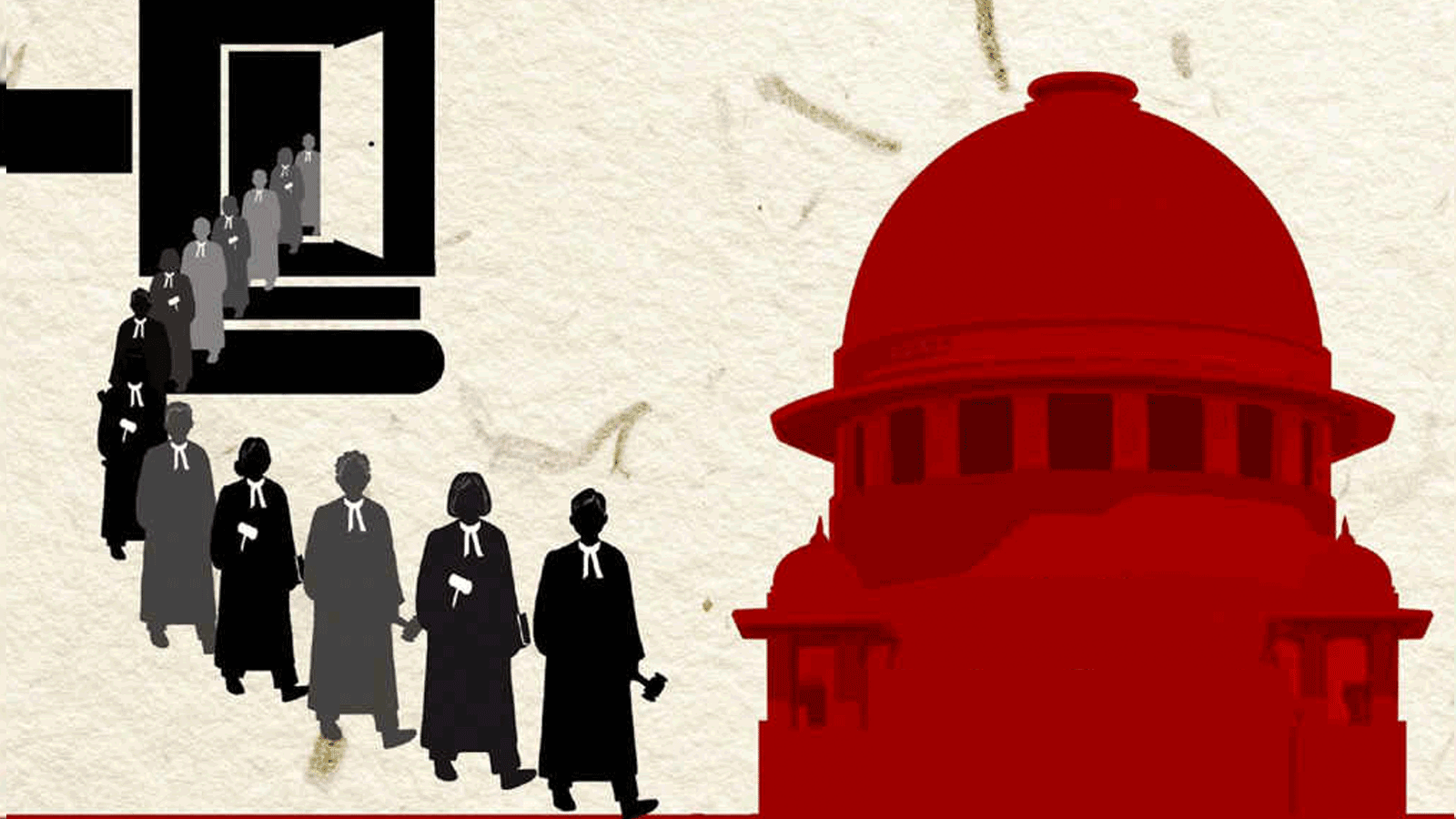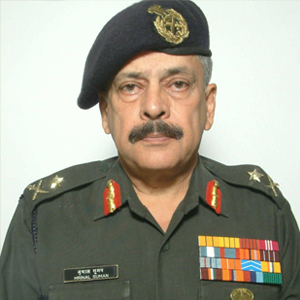NJAC and Judicial Independence
Unfortunately, the collegium system has been perpetuating the stranglehold of a few families over the higher judicial appointments
Total Views |

Apropos to my article “The Higher Judiciary and the Collegium Paradox” (https://thenarrativeworld.in/the-higher-judiciary-and-the-collegium-paradox). Whereas almost all readers have endorsed my views, there are some who have expressed their reservations. They apprehend that replacement of the collegium system by the National Judicial Appointments Commission (NJAC) would result in the control of judiciary by the politicians (or the
government of the day), thereby compromising the independence of the judges.
Unfortunately, the above misconceptions flow from preconceived subjective opinions and sheer ignorance about the provisions of NJAC. Just because the Parliament had passed the Act, doubts are being expressed about its motives. It may be recalled that all political parties (including Congress) had supported it.
National Judicial Appointment Commission (NJAC)
Before carrying the discussion forward, let me highlight the salient aspects of the NJAC Act.
Composition
Chairman – Chief Justice of India
Two other senior most judges of the Supreme Court
Union Minister of Law and Justice
Two eminent persons – to be nominated by a committee consisting of Chief Justice of India, Prime Minister and Leader of Opposition (or the single largest party in the Lok Sabha), provided that of the two eminent persons, one person would be from the Scheduled Castes or Scheduled Tribes or OBC or minority communities or a woman. The eminent persons shall be nominated for a period of three years and shall not be eligible for re-nomination.
Primary Responsibility
Recruitment, appointment and transfer of judicial officers, legal officers and legal employees under the central and the state governments. Recommend persons for appointment as Chief Justice of India, Judges of the Supreme Court, Chief Justices of High Courts and other Judges of High Courts.Recommend transfer of Chief Justices and other Judges of High Courts from one High Court to any other High Court.
Functioning
The Commission shall not recommend a person for appointment if any two of its members do not agree to such recommendation. The Commission shall recommend the senior-most judge of the Supreme Court for appointment as Chief Justice of India, provided he/she is considered fit to hold the office.
An Appraisal
An appraisal of the composition shows that the government has been assigned very limited role in the selection of the members of NJAC. Out of the six members, three are sitting judges of the Supreme Court. In addition, both the nominated members are selected with the concurrence of the Chief Justice of the Supreme Court. It implies that the judiciary has five out of the six members of its choice. Representation of the government is limited to a sole member, i.e. Union Minister of Law and Justice.
More interestingly, the Commission can forward no recommendation if two members dissent. Thus, the Supreme Court with three members holds the ‘veto power’. The judiciary constitutes the single largest group and the Supreme Court continues to call the shots. The government cannot ride roughshod over others and it will be the will of the judicial members that shall prevail.
If the control remains with the Supreme Court, why does it oppose the NJAC Act so vehemently? The reason is obvious – the judiciary resents the presence of the Law Minister in the Commission. It wants to keep the deliberations totally in-house and private. Presence of a government representative would hinder the agenda of promoting family interests and expose all collusions/machinations.
A detailed clarification was given in the dissenting judgement of Justice Chelameswar. He had opposed setting aside of the NJAC Act. He said, “Transparency is a vital factor in constitutional governance. Proceedings of the collegium are absolutely opaque and inaccessible both to public and history, barring occasional leaks."
Justice Chelameswar pointed out that there were cases where the apex court collegium ‘retraced its steps’ after rejecting recommendations of a particular name suggested by the High Court collegium, thereby giving scope for a great deal of ‘speculation’. "There is no accountability in this regard. The records are absolutely beyond the reach of any person including the judges of this Court who are not lucky enough to become the Chief Justice of India”, he added. He also termed the apprehension that the government would pack the higher courts with its cronies as ‘illogical and baseless’. He opined that the presence of three senior most judges of the Supreme Court in the NJAC was a wholesome safeguard against such possibility – any two of the three judges can stall such an effort, if ever attempted by the government.
According to Justice Chelameswar, the most essential safeguards to ensure the independence of the judiciary were certainty of tenure, protection from removal from office except by a stringent process, protection of salaries and other privileges from interference by the executive and the legislature, immunity from scrutiny either by the Executive or the Legislature of the conduct of judges with respect to the discharge of judicial functions except in cases of alleged misbehaviour, immunity from civil and criminal liability for acts committed in discharge of duties and protection against criticism to a great degree. NJAC does not touch these safeguards at all.
Finally
India has come a long way since Independence. All vocational avenues have been opened up for the meritorious children from the not-so-privileged families. Bright students from vernacular schools have been excelling in all fields. A fair proportion of them have become commissioned officers in the armed forces. Many have proved their mettle in IFS/IAS/IPS and done the country proud.
As a part of judicial reforms, the government has also been trying to build a consensus for the establishment of an All India Judicial Service (Group 'A' gazetted officers) to recruit judicial officers at the rank of Judicial Magistrate 2nd Class through an all-India examination. Their career progression can take them right up to the Chief Justice of India, on the basis of merit and seniority. Similarly, the government proposes to create an All India Judicial Service (Group 'A' gazetted officers) for appointment as legal officers to the governments with their promotional avenue going up to the Attorney General of India.
Unfortunately, the collegium system has been perpetuating the stranglehold of a few families over the higher judicial appointments. One can see thousands of young and bright advocates wasting their lives as notaries or appeal-writers outside the courts. They have no hope of ever making it to the higher judiciary. The collegium system is a ‘cosy club’ in the true sense of the word where connections and linkages prevail and not merit. Its doors are shut for the outsiders. The proposed All India Judicial Service and All India Legal Service can provide much-needed opportunity to the aspiring law-qualified youth. They can qualify in the examinations and seek merit-based advancement in their careers.
Finally, a few posers for the advocates of the collegium system. Is there any country in the world (and there are nearly 200 of them) where the judges appoint themselves? Is there any country in the world where the judiciary sets aside an act passed by the parliament and promulgates its own orders as the law of the land? Is there any country where issues concerning selection, appointment, transfer and promotion of the judges are decided amongst a close group of five persons with no one else ever getting to know the basis of deliberations? Is there any country where a judge of the High Court can never get to know as to why he was found unfit for elevation to the top court? There are many more such questions but the answer to all is ‘No’. Pray what is so unique about India that we have to be the sole exception?
The higher judiciary is in the news for all the wrong reasons. India can ill-afford a judiciary that lacks credibility. It must redeem its standing by earnest introspection. Citizens must have faith in its competence and its conduct should be beyond reproach. Only a resilient judiciary can safeguard the rights and liberties of the citizens. If India has to thrive as a vibrant democracy, a dynamic and independent judiciary is absolutely indispensable.


